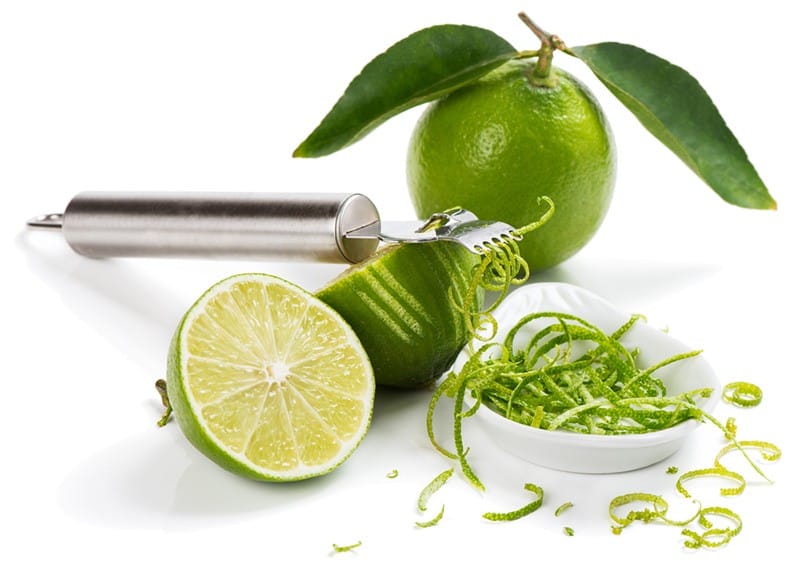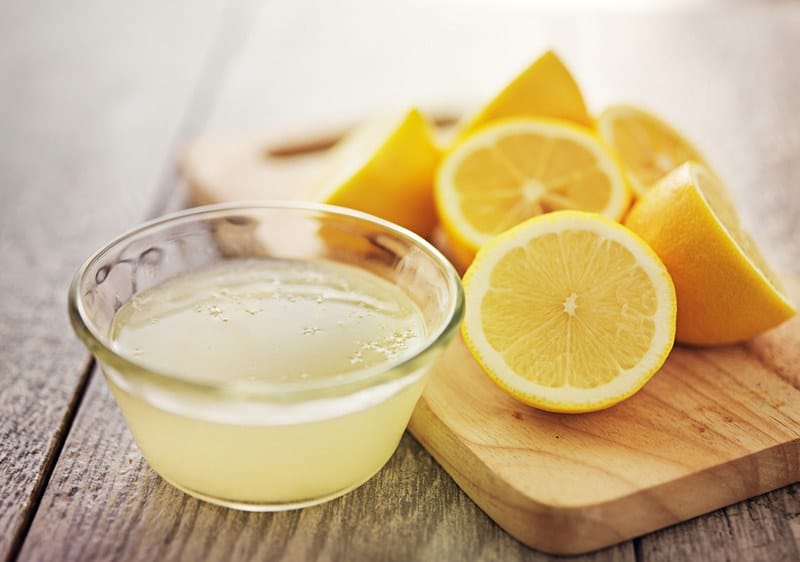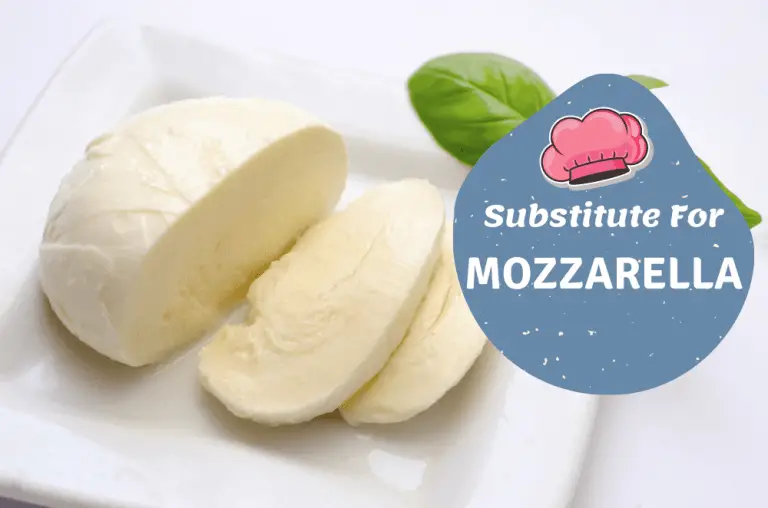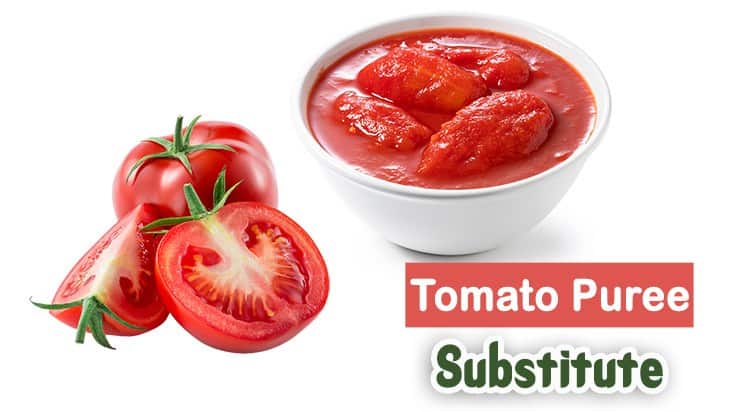
Orange zest and other citrus zest can work wonders in cookies, cakes, and other cooked stews. Besides, we can add orange zest to yogurt, salad dressings, cookies, and many other products.
However, it may boggle your mind if there is no orange zest left in your kitchen. Don’t worry. This article will ensure that you find the most suitable orange zest substitutes under most circumstances.
- Related post: Best Substitute For Orange Marmalade To Upgrade Your Menu
9 Best Orange Zest Substitutes To Try In Your Recipes
1. Lemon Zest

Lemon zest has a mildly bitter taste. In particular, the lemon zest is the part that chefs use flexibly, emphasizing both flavor and delicate decoration color.
If you don’t like the smell of orange zest but still need a slight acidity and aroma to your dish, then the lemon peel is the perfect substitute. Lemon zest contains a large amount of natural essential oil, which is the best source for exploiting the citrus flavor.
In addition, the lemon zest has a high nutritional value such as fiber, vitamin C, and minerals to help reduce the risk of heart disease, kidney stones, cancer, increase resistance and protect your health.
How to use zest lemon?
First of all, we should choose a good quality lemon. Organic lemon is recommended. Because we use the outer shell, which is subject to external influences such as pesticides, don’t forget to wash and dry the lemon before using the zest.
Lemon zest and oranges have a similar spicy taste, which means you can substitute lemon zest for orange zest in a 1:1 ratio (a teaspoon lemon zest to replace a teaspoon of orange zest).
Orange zests often have a sweeter taste than lemon zests, so when using lemon peels instead, you should customize to add sugar and honey to create delicious dishes.
We can use some equipment such as a Microplane, box grater, zester/vegetable peeler, paring knife to take lemon zest (need to scrape away from the stem since it gets too bitter on that area) as an additive to enhance the taste. However, do not abuse using too much dosage to change the prominent flavor of the dish.
Lemon zest is a reasonably versatile ingredient in food preparation. From the main course (mixed salad, soup) to the dessert (ice cream, cookies), lemon zest is the ingredient that creates an impressive highlight for the product.
How to get the lemon zest quickly, deliciously, and effectively?
2. Vinegar

Vinegar is an essential ingredient, widely used in the culinary world for a long time, especially in Asian and European cuisine.
Vinegar comes from 4 primary sources for extraction: beverages, fruit, grains, and fermentations. Each source has its unique taste and nutritional factors. For example, vinegar made from grains is more acidic than vinegar from fermentation.
Vinegar is a diversity of materials that can be used in almost any recipe and won’t cause any flavor conflicts. In addition, vinegar is the best seasoning for weight loss diets because they are free of any fats and harmful cholesterol.
How to use vinegar?
Note when choosing vinegar as a substitute in sweet dishes because it is purely sour with a robust and bizarre smell.
In terms of taste, the acerbity in vinegar is studied higher than the orange zest. Therefore, we recommend using this substitute for less than half of the orange zest recipe (1/2 vinegar tablespoon replace for a tablespoon of orange zest).
Although vinegar contains a select number of vitamins and minerals, the amount of micronutrients in vinegar is not a significant contributor to your daily vitamin and mineral needs.
Therefore, you need to combine many other foods to provide an adequate amount of essential vitamins daily.
In some popular recipes, such as baking, people often add vinegar to increase the crispness and sponginess of the cake, salad dressings, and vinegar to create flavor and acidity.
Red and white wine vinegar are commonly used everyday vinegar. They are helpful in salad dressings and marinades. Red wine vinegar is best used with beef, pork, and vegetables to make foods richer-the best white wine vinegar for chicken and fish dishes.
3. The Pure Extract From Oranges

With the fresh, citrusy, juicy flavor from fruit, it is a proper orange zest substitution.
Using orange extract is a safe choice because it has the same taste as orange. So it won’t change the taste of your dish too much from the original recipe.
How to use the pure extract from oranges?
However, the extract gives a much more intense flavor than the rind. So we recommend using a few drops of the extract for each use, then taste the dish and adjust the flavor until you’re satisfied.
4. Pineapple

Pineapple is a commonly grown fruit in tropical climates with a slightly sweet taste and a characteristic aroma. Suppose you want to remove citrus from the dish altogether. Then, pineapple is the best substitute.
In addition, pineapple contains many vitamins such as vitamin A, vitamin C, vitamin E, vitamin K, and minerals that help improve health and prevent diseases effectively. Bromelain is one of the anti-cancer components present in pineapple.
How to use pineapple?
For this fruit, of course, do not use “pineapple zest”; instead, use finely ground or minced pineapple.
Since pineapples are sweeter than oranges, your product will be more precious when using pineapple instead of orange zest. According to the research recipe, we reduce half a teaspoon to 1 teaspoon of sugar for one teaspoon of pineapple. Depending on how each person feels and likes, we can consider adjusting accordingly.
Pineapple is used in quite a variety, especially in desserts such as salads, pies, cakes, ice cream, yogurt. Not only that but also in many dishes such as ham, pork, chicken and seafood.
Read More: Amazing Substitutes For Pineapple Juice
5. Grapefruit Zest

Grapefruit is a relatively common subtropical citrus fruit known for its rather large fruit mass, sour to sweet, and slightly bitter. The grapefruit zest is yellow-orange, eye-catching brightness suitable for decorating dishes.
In terms of nutritional value, grapefruit zest contains pectin – an ingredient known to have cholesterol-lowering effects. Grapefruit zest also contains fiber that adds good quality to your digestive system. You can also use grapefruit zest to main flavor dishes like salmon to desserts like soft drinks, candies, jams, and teas.
How to use grapefruit zest?
The base ratio for this substitution recipe is 1:1, which means one teaspoon of grapefruit zest instead of 1 teaspoon of orange peel. So although they are two different fruits, you will feel the harmony no less than the previous recipe and not even notice the change.
6. Grapefruit Juice

In addition to grapefruit peel, you can use grapefruit juice with a home juicer. If not, you can find grapefruit juice products available in the market.
Compared to the zest, the amazing nutritional content of grapefruit juice is vitamin C – an ingredient that can fight free radicals and prevent cancer. In addition, the content of vitamin C, vitamin B6, potassium is also excellent for relaxation and blood circulation.
How to use grapefruit juice?
According to experts, the reasonable ratio should be to use 1 ½ teaspoon of grapefruit juice to replace a teaspoon of orange peel. If you like the taste of grapefruit and want more flavor, you can add a little more.
7. Clementine Zest

If you need a fruit with a sweeter taste than orange, suitable for people with stomach diseases but still want a specific taste. Then, Clementine is a wise choice for you.
Nutritionally, clementine is rich in antioxidants like vitamin C and fiber, which can help improve your skin and gut health.
A clementine is a citrus fruit hybrid between a mandarin and a sweet orange. The outside is a deep orange color, and the bark is smooth. Similar to tangerines, they are easy to peel by hand. However, they are usually succulent and sweet in taste, darker in color than oranges, and lower in acidity than oranges.
How to use clementine zest?
According to research papers, the basic ratio for the recipe of replacing clementine zest for orange zest is 1:1, which means one teaspoon of clementine zest for one teaspoon of orange zest.
8. Lime zest

Limes are just as famous as lemons. The fruit is green and smaller than a lemon. Similar to lemons, limes also have nutritional content such as fiber, vitamins, and minerals. Despite the close relationship, the lime still has a difference. Specifically, lemon has a sweet taste. Lime is usually more sour and bitter.
Both are great additions; thanks to each fruit’s properties, the two have different applications. If lemon is suitable for desserts and sweets, lime is ideal for salty dishes such as meat and fish.
How to use lime zest?
Lime zest is quite suitable for processing meat and fish dishes because they have a good deodorizing ability.
Lemon zests are pretty suitable for processing meat and fish dishes because they have a good deodorizing ability. However, the disadvantage of this fruit is that it has a strong smell and taste. If used too much, the bitter taste can overwhelm the taste of the dish.
When substituting for orange zest, the recommended ratio is half a teaspoon of lemon zest for 1 teaspoon of orange zest.
9. Lemon Juice

We can use grapefruit juice. Why not lemon juice? We can use grapefruit juice. Why not lemon juice? You can extract its juice directly from the fruit and use it. Remember that lemon’s properties are sour and bitter, especially when extracted directly from the fruit. Therefore, you can add a little sugar or honey to balance the taste.
How to use lemon juice?
According to general information, the ratio when replacing lemon juice for orange zest is two teaspoons of lemon juice to substitute a teaspoon of orange zest. In general, the percentage of lemon juice in this recipe is quite high. You can consider adding little by little until just enough to avoid damaging the product.
Frequently Asked Questions
Orange Zest And Orange Peel Are Different?
These are two crucial, confusing concepts that we need to distinguish in cooking. Although orange zest and orange peel are related, they still have differences in taste and characteristics.
When referring to “orange peel,” it consists of the outer shell and the white part in the next layer. Thick crust is often used to surround the dish, adding more attractiveness in color and taste.
Besides, orange zest is the smooth part of the orange peel. Zesting is a specific technique for getting that rind. If done, orange zest can impart you some wonderful tang and taste that even overcomes the original orange fruit.
Which Orange Zest Substitution Is The Easiest To Make?
Most of the orange peel substitutes mentioned above are common. Yet, if choosing the easiest of them, it is the lemon zest.
Can I Use Orange Juice For Orange Extract?
Of course. The orange extract has a more concentrated flavor than orange juice and is added to alcohol for preservation. You can completely use orange juice for the extract; the taste will not change too much. However, you need to adjust the concentration to suit the dish you want.
Which Orange Zest Substitute Is The Most Delicious?
The taste depends on each person’s like, so it is impossible to determine which type is the best.
In our opinion and subjective feeling, lemon zest is the best because it has the exact citrus origin, so it will be easier to adjust the dish’s flavor.
Can I Substitute Orange Oil For Orange Zest?
It’s alright to substitute orange oil for orange zest. For one tablespoon of orange zest, you can substitute 1/2 teaspoon of orange oil or vice versa.
Can You Use Dried Orange Zest In Food? How Do You Use Dried Zest?
You can add this dried orange zest to bread, cookies, pies, and other desserts. Or, orange zest can be added to rice for extra flavor or spice up hot or iced tea. Dehydrated orange zest has a strong flavor, so you should only put a third of what your recipe calls for in fresh zest.
Conclusion
The substitutes listed here are all great for your recipes. However, it’s important to know that these ingredients may not be as potent or flavorful as the original orange zest substitute.
If you want a more intense flavor of oranges in your recipe then consider using one of the other substitutions on this list like fresh lemon juice or lime juice.
We hope that we’ve helped you find some substitutes for orange zest and if there is anything else we can do just let us know!






